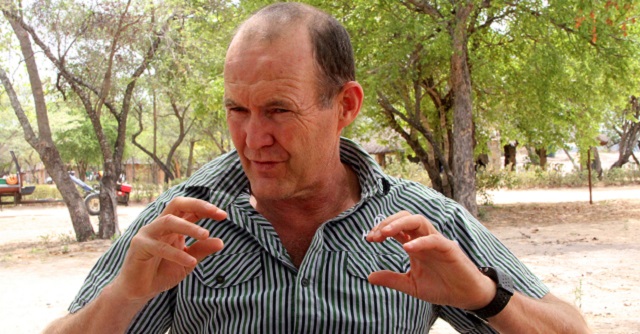
The Sunday News

Lackson Munkombwe, Features Reporter
WHEN Memory Njunga started selling tomatoes, sweets, bananas and a few packets of vendors’ collections on the streets in Bulawayo, she had no idea that one day she would be on the top of her game, standing among other professional business suppliers in the country.She had reached a time when nothing was going her way, her world crumbling, with her hopes of living a better life blown away in misery and despair. She could not fend for herself and worse off a big family.
Njunga recites a proverb “What good is running when you are on the wrong road.” She embraced an opportunity to train and learn business management and merchandising and it seemed the sky was the limit for her as she found a new hope.
In Zimbabwe, a vendor is depicted as someone who sells goods and services on the streets, presumably with no operational ability for growth.
Over the years, vendors have taken up all the cities’ street corners at which sellers occupy barely less than a square metre, usually vending bananas, apples, oranges, and green vegetables such as chomolia, cabbages, peas and many others.
Social stereotypes, war against the city fathers and even lack of capital incentives to sustain and grow the business have been a routine understanding in the societies.
However, to bridge the norm against the widely contested practice in the country, Njunga has a big and inspiring story to brag about to so many other vendors like her.
Njunga describes her old story as naïve, unprincipled, based on her lack of business skills and proper vision about the trends on the ground.
She said she conducted business with no proper planning and that she was always content with her line of basic utilities she would sell every day.
“I used to sell Jiggies, tomatoes and vegetables on the streets in Bulawayo,” said Njunga. “Despite that I never realised any profits, I did not have any plans to outgrow myself from what I was doing.”
She said most vendors are not business wise, a factor that has contributed to lack of astute business ideas and other ethical perspectives required in the flow of a functional and developmental economy.
“Vending to me was about selling tomatoes and sweets on the pavements. I would sell almost the same quantities everyday, making cents of profits but I was supposed to always be selling something to keep my days going,” said Njunga.
She said after embarking on an enlightening training programme organised by Diamond Berry Enterprise, an organisation which seeks to empower women in helping them to grow their businesses and nurturing them on their different ideas so they develop and give them means to sustain their ventures, she was able to think of becoming a smart, professional and an effective vendor in the city.
Njunga said vendors are mostly marginalised and usually lack empowerment from other corporates in the country.
“The country is suffering from a socio-economic, political and health fix due to lack of knowledge by a particular group of people,” she said.
“Vendors need to know why they exist, be it on the streets or whichever environment, and that they are entitled to growth, providing quality services and maintaining the surroundings where they operate from.”
Njunga said after the training, she had become a smart vendor with an eye to break into one of the biggest suppliers of different goods and services at her disposal.
“I realised that cleanliness and proper facilities were key factors for successful business. Yes, being innovative is fundamental but from a low profile people like vendors, lessons on how to treat yourself as an individual are very important,” she said.
“I started presenting myself professionally and treating every customer with care. In the end, I started building my brand to form an identity about my products and that worked.”
Njunga now owns a hardware shop in Bulawayo along Herbert Chitepo and 4th Avenue where she sells different wares. She has significantly grown from a mother who sells tomatoes and bananas on the streets to a cross-border trader.
“I learnt that growth was necessary for every businessperson. Most people will spend years selling a bucket of tomatoes and a pack of Jiggies without necessarily thinking of expanding and or changing to new business ideas. I am now a registered vendor, and I am licensed to do my work. Business is going well for me than before,” she said.
Njunga is among a group of people who have strongly benefited from the training programme even though capital constraints have significantly hampered their development.
Managing director for Diamond Berry Enterprise, Mr Nhlanhla Dabengwa said there is a need to empower vendors after realising they were being marginalised and excluded from various business forums which are organised in the country.
Mr Dabengwa said vendors lack empowerment, a situation which has resulted to poor sanity in the city.
“As Diamond Berry, we realised that vendors have the capacity to contribute highly in the economy. However, in our study we found that they lacked skill and most of them had no clear vision apart from what they were doing on daily basis,” said Mr Dabengwa.
He said with proper training and mentorship, vendors would soon go formal in their businesses, which is ideal in the growth of any economy.
“We have trained over 100 vendors up to date and the responses have been overwhelming. We have partnered with Centre for Social Science and Research to train vendors with occupational skills in Marketing and Merchandising, Financial Management and basic Accounting. We teach elementary courses because we know exactly the calibre of the people we are dealing with,” said Mr Dabengwa.
Even though Diamond Berry has not been able to assist vendors with financial aid to boost their businesses, Mr Dabengwa said they are on the verge of forging a partnership with the National University of Science and Technology to create a system that assists vendors and several Small to Medium Enterprises called “Smart Vending”.
“Smart Vending system will help us to manage and track all registered vendors in relation to their growth. It will assist to identify key areas of performance in a bid to try and rope them into formal trading,” he said.
Mr Dabengwa said the organisation has celebrated women and young girls in business through the Winter Affair exhibition annually, where various people who are excelling in the industry can showcase their products.
“This year we held our Winter Affair exhibition in September after finding it hard to do it during the elections campaign period. However, women of excellence managed to display a number of products during the exhibition. We do this to inspire other young women and several other people into vending. We realise that people get really inspired and we have heard this through testimonies on how they have improved ever since we started engaging with them,” he said.
Meanwhile, vendors have attracted a lot of criticism from the corporate world for operating at undesignated areas. Recently, police have been roped in to disperse vendors from street corners in Harare and Bulawayo as the quest to abate the spread of cholera continues in the country.



